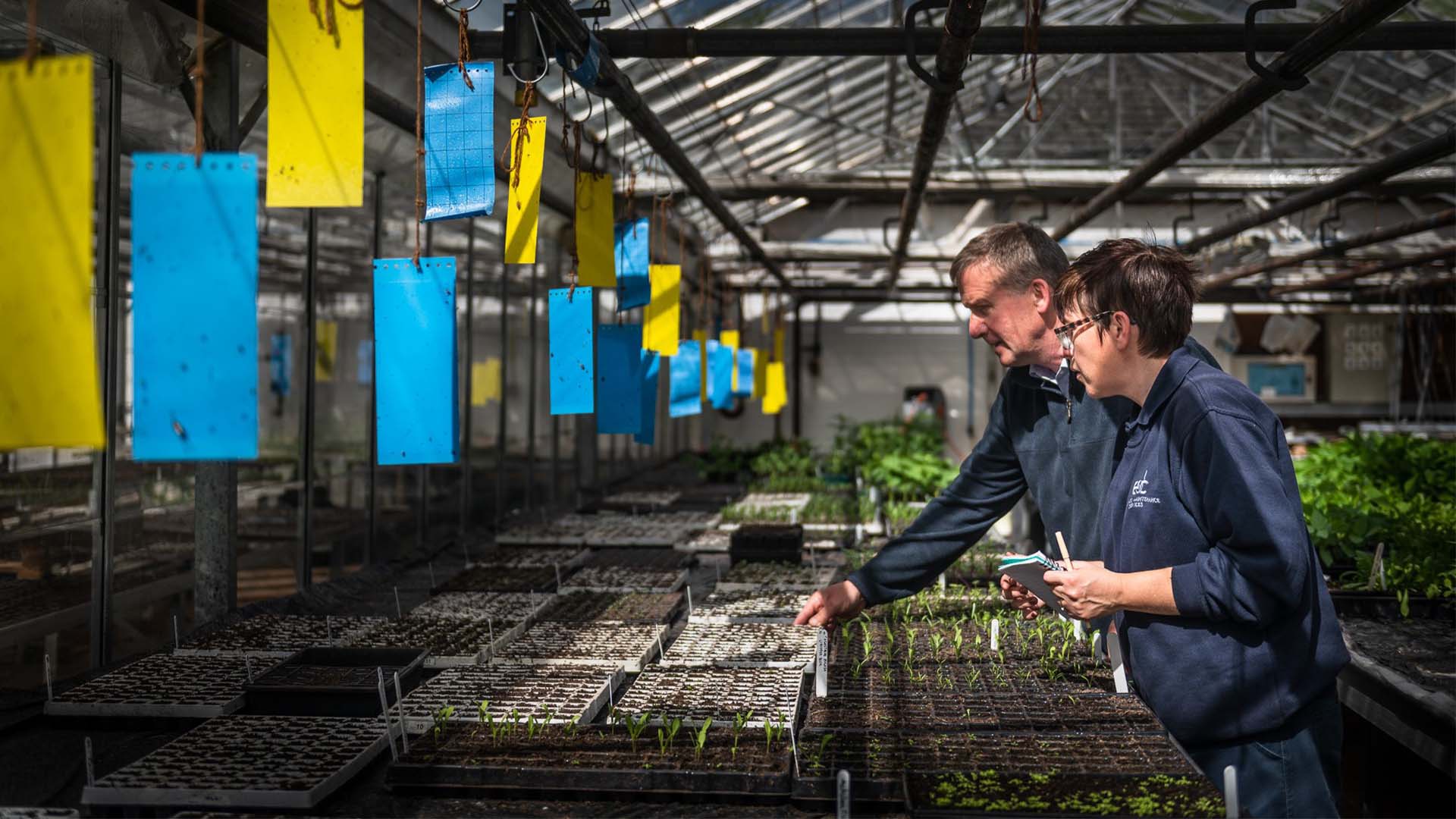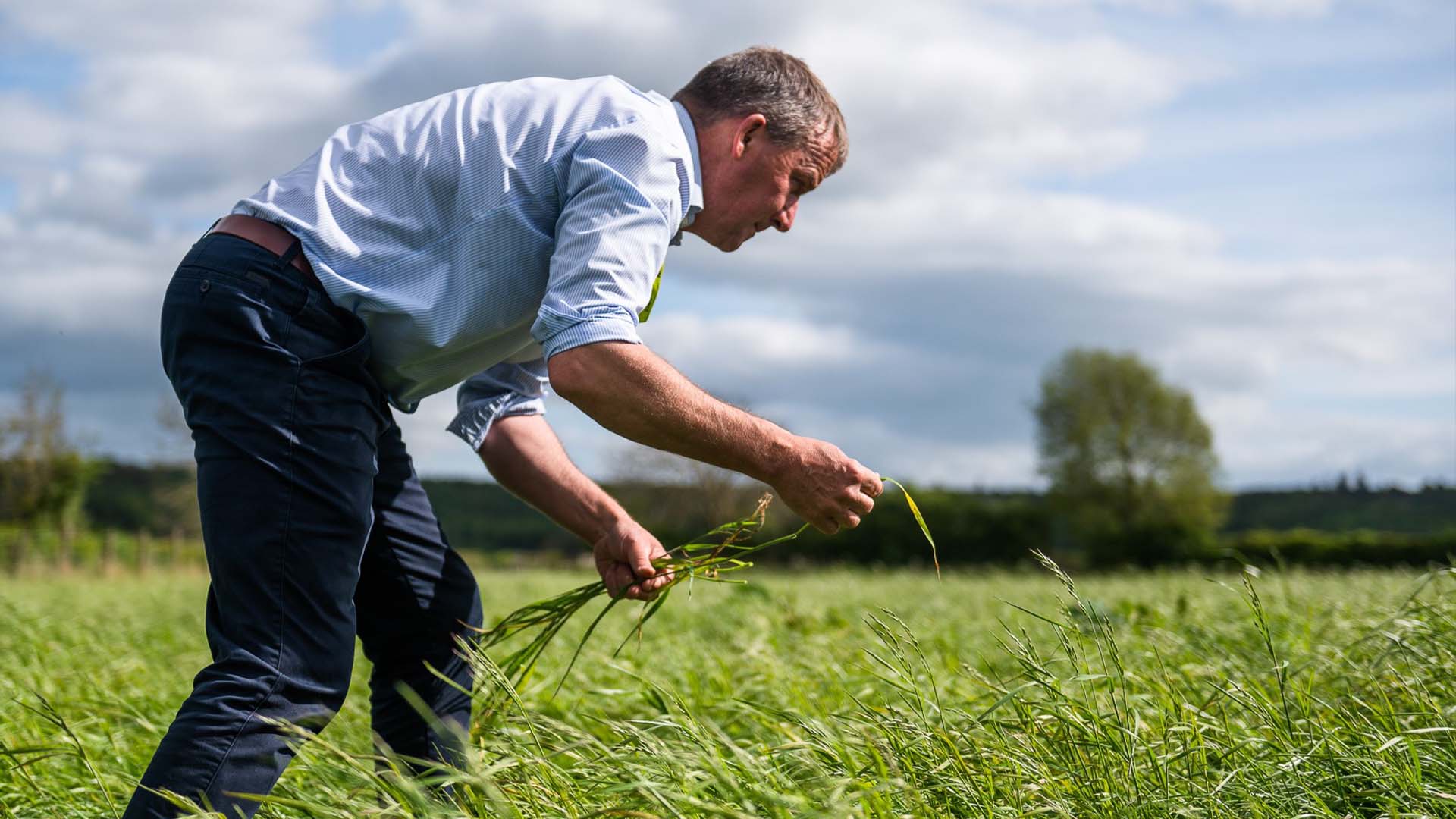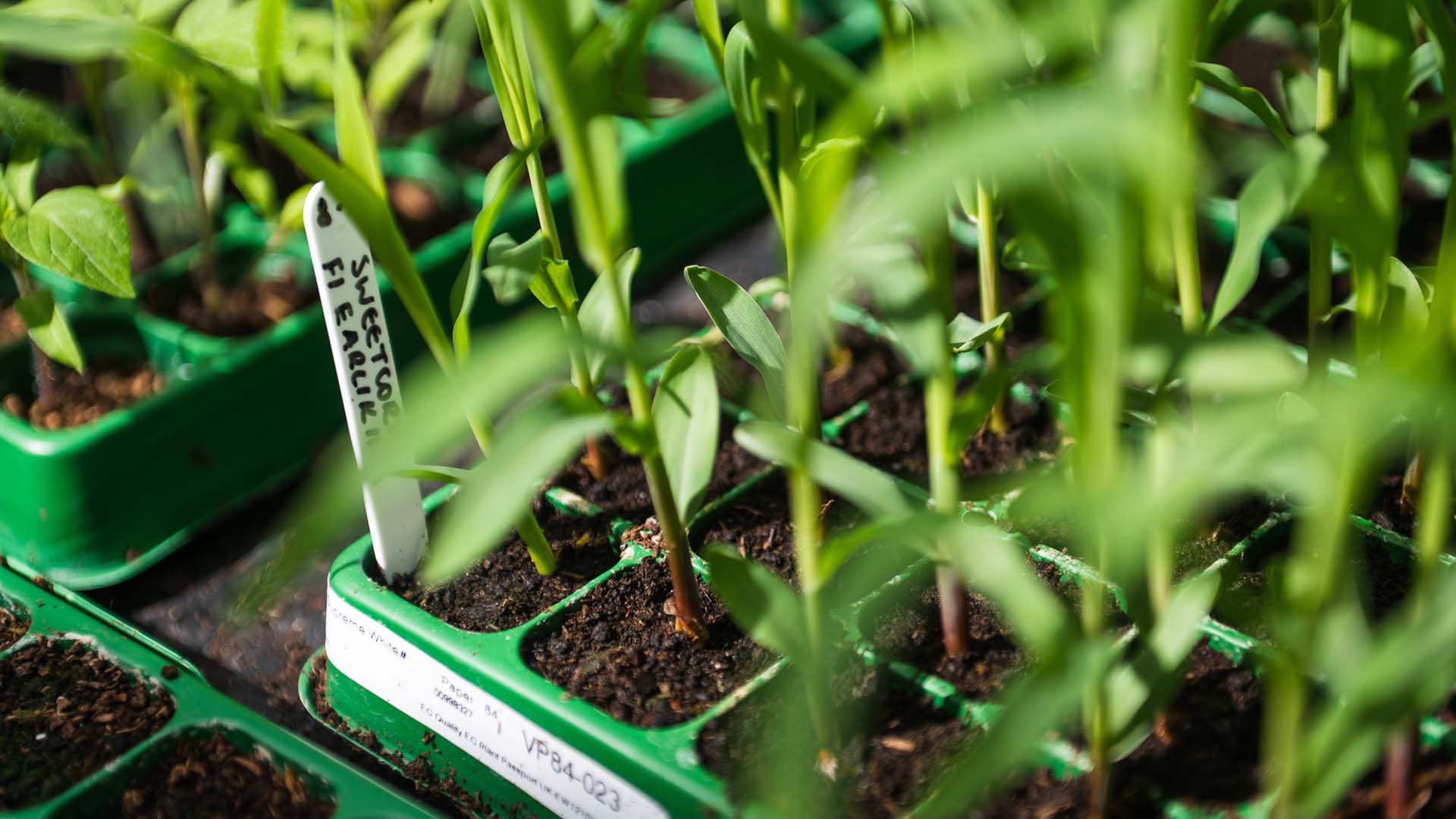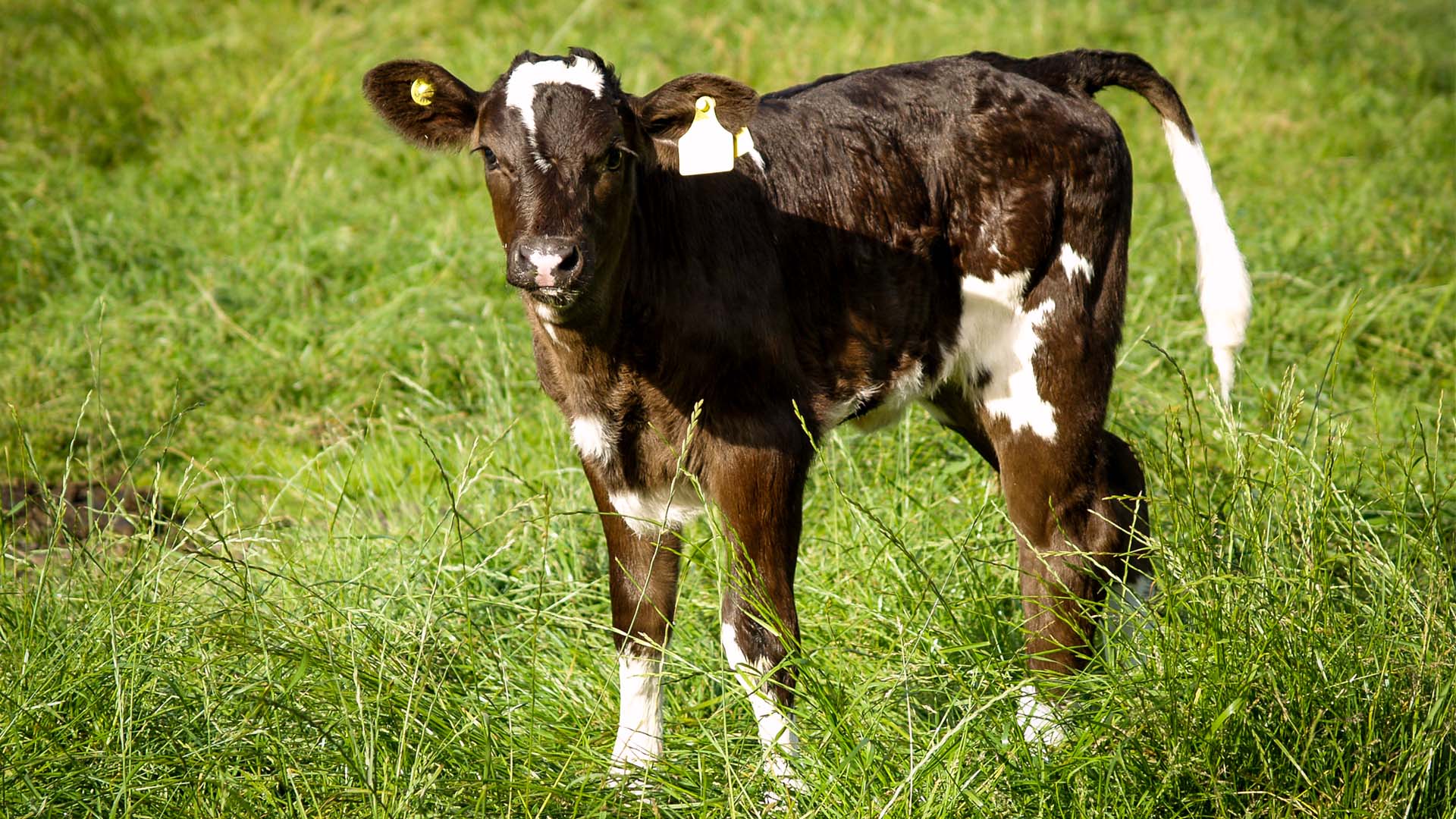
Houghall Campus Farm - Environmental & Sustainability Initiatives
The Farm at the Houghall campus has recently added a number of new initiatives to further enhance its sustainability credentials.
Composting
The farm has successfully produced the first two batches of Luebke compost at scale, (based on an Austrian approach). This makes excellent use of a range of waste materials from the estate including woodchip, green waste and any silage or hay not meeting the required standard for livestock. Around 100t of waste has been processed in this way.
This is being applied to Houghall Gardens. It acts as a weed suppressant, retains moisture, and provides much of the nutrients required by the plants. The benefits to soil structure, earthworm activity and fertility are well documented.

Growing
This spring we will be venturing back into Horticulture starting with a ‘No-till, deep-mulch Market Garden.’ Home produced compost will be used to feed, weed-mulch and nurture the plants. The technique was originally perfected at ‘Hexhamshire Organics’ by Bob and Ann Paton, hence the ‘Paton’ method was born!
Soil Management
The farm is transitioning to a no-till cropping system, avoiding the need for soil cultivation, which we know can accelerate soil erosion. Crop residues are returned to the soil and this is accounted for by reducing purchased mineral fertilisers. Soil nutrient content is measured and mapped every ten metres to support variable application of fertiliser, applying only where needed.
Catch crops and cover crops are sown to prevent exposure to soil erosion. This can be improved by ‘back-fencing’ grazed areas.

Grassland: Grazing method
Controlled or ‘Technical’ grazing within specific grass yield targets to ensure maximum grass yield and utilisation.
This gives higher levels of protein, energy and digestibility.
Total production is expected to increase to two and a half times that of conventional grazing systems.
Utilisation, the amount of grass put to good use by grazing livestock, is expected to increase from fifty percent to seventy-five percent.
This reduces the requirement for purchased and supplementary feeding whilst delivering faster growth rates. This ‘virtuous circle’ also reduces the farms reliance on external inputs, meat will be produced sustainably from home-produced feed.
Livestock are rapidly withdrawn from grazed areas, usually within a day or two, reducing the impact on soils.
Legume: White Clover, for biological nitrogen supply.
The introduction of white clover varieties will remove the need for purchased artificial nitrogen within the grassland system. Inclusion of grassland within the wider crop rotation will reduce the requirement for purchased nitrogen for crop production.
The farm will pilot an organic approach to crop production, reviewing the sustainability impact.
The objective of the farm will be maximum sustainable production, maximising production whilst achieving all that it reasonably can to support greater sustainability.

Livestock
The college is pursuing ‘High Health Status’ by testing for and eliminating livestock diseases and applying preventative health care. This to ensure consistent and reliable production, making better use of resources.
Production is based on grazing with some home-grown forage and crops. As far as possible we will continue to move towards pasture fed livestock, requiring little or no supplementary feed. This will allow the farm to focus on producing food for direct supply to the retail market.
